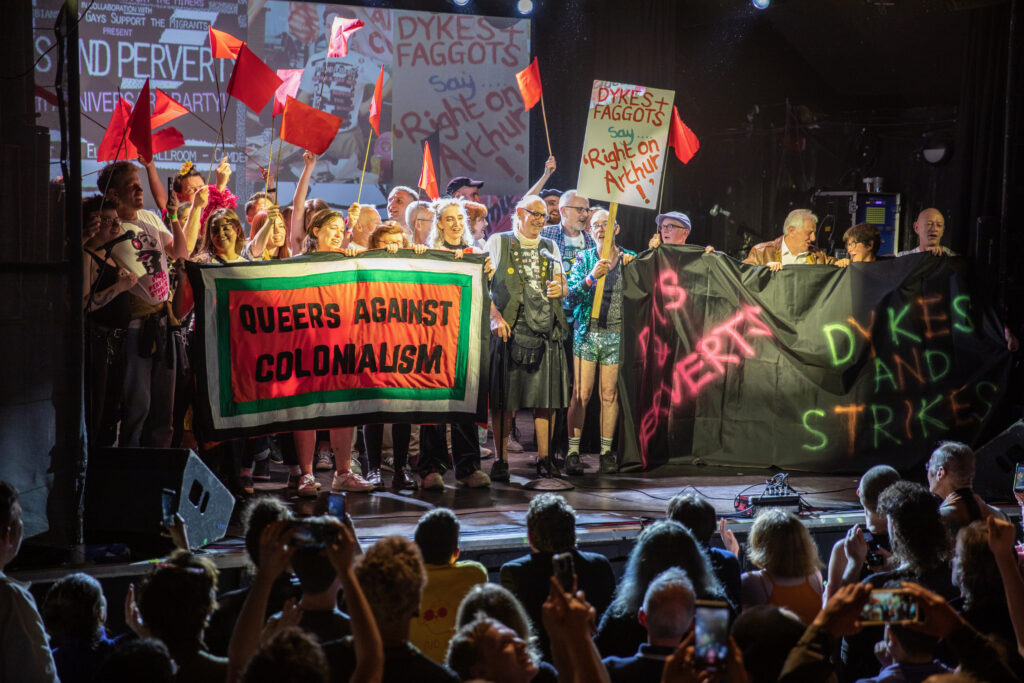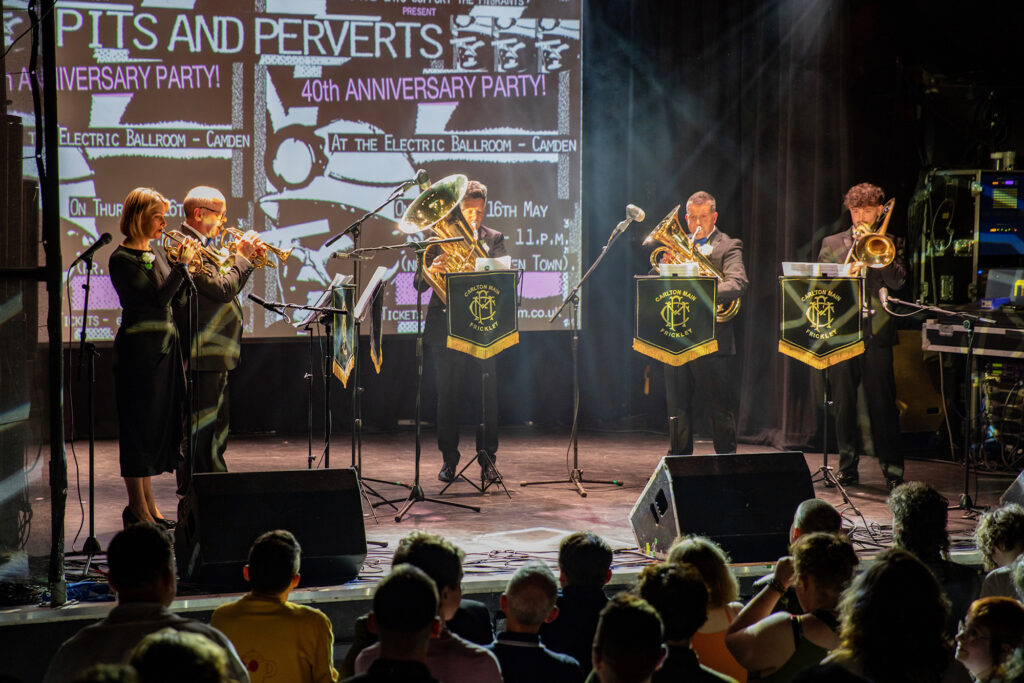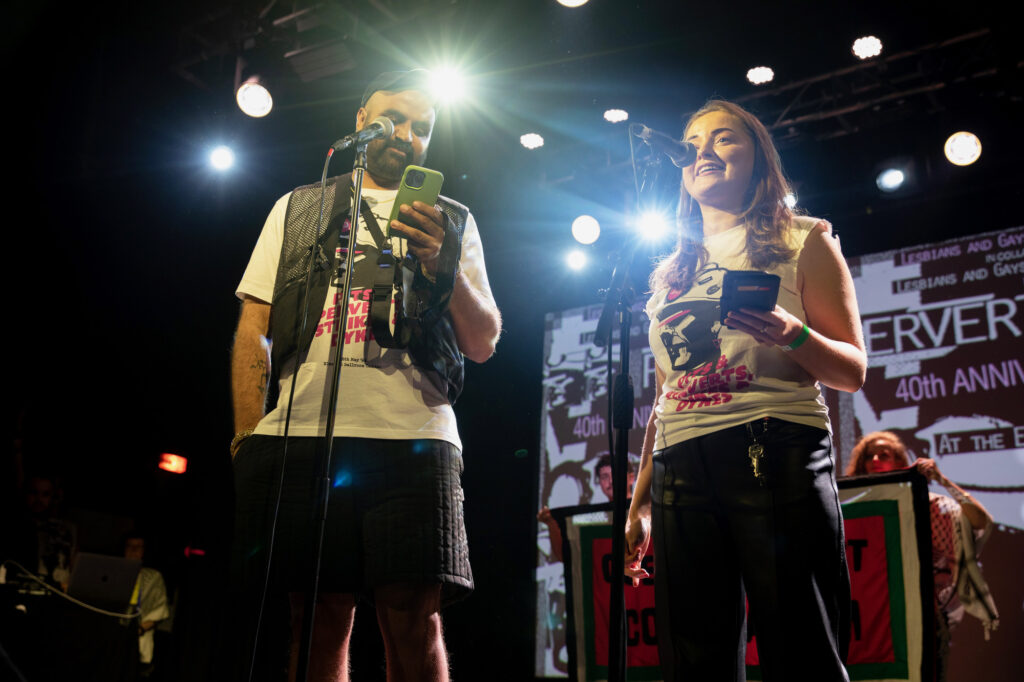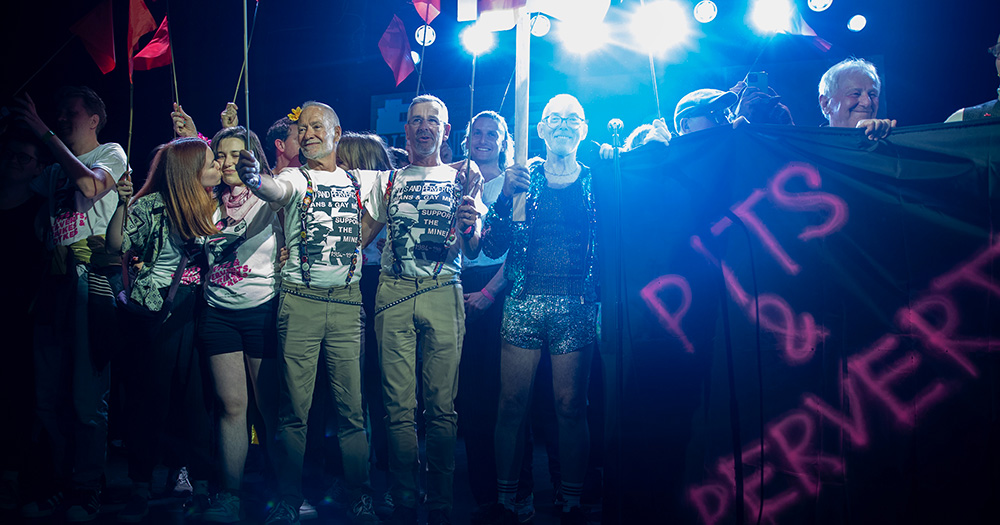Lesbians and Gays Support the Miners (LGSM), a group founded in 1984 in direct opposition to Margaret Thatcher’s Tory government, was comprised of a plethora of LGBTQ+ folk who worked in solidarity with the National Union of Mineworkers (NUM) strike.
From 1984 to 1985 in the UK, the NUM staged its year-long strike in an attempt to prevent the closure of coal mines throughout the country. The main antagonistic force facing the organisation throughout its strike was then-Prime Minister Margaret Thatcher’s Conservative Tory government. At the time, Thatcher was dedicated to reducing the amount of power that trade unions held.
While the connection between queer identity and trade unions might seem strange, LGSM co-founder Mike Jackson reported that “the strike was headline news throughout the year dividing Britain in two: pro- or anti-strikers.
“The miner’s union was asking for solidarity support from members of all other unions, but beyond that, support from the public itself,” Jackson continued. “Many LGBT+ trade union activists were already supporting the miners but not overtly as LGBT+ individuals.”
In 1984, Johnson joined forces with the late Mark Ashton while the two were working as volunteers for the London Gay Switchboard.
“(Ashton) suggested that the two of us collect for the striking miners on the forthcoming 1984 Pride march,” Jackson explained. “We were both encouraged by the overwhelming support we got both in terms of donations and the strength of feeling about Thatcher and her Tory government.”
While Jackson and Ashton only raised £150 at London Pride in 1984, their early success prompted a total of 11 LGSM groups to form before the strike was over. By the end of 1985, and the end of the miner’s strike, LGSM had collectively raised £22,500 for the NUM, an equivalent of £86,000 in 2023.
The largest fundraising event in LGSM’s history was its Pits & Perverts benefit concert. Hosted at the London’s Electric Ballroom in Camden Town on December 10, 1984, the Pits & Perverts benefit was headlined by Bronski Beat, an up-and-coming British synth-pop band.
Reminiscing on the landmark event in LGSM’s history, Jackson told GCN: “In London, striking miners would always be allowed into any benefit for free if the benefit was a fundraiser for the miners. During the gig, a young Scottish miner saw me wearing our Pits & Perverts t-shirt and asked if I had something to do with the event. I said, yes, I was a member of LGSM.
“He was gob-smacked and just said, ‘I had no idea that you (lesbians and gays) supported us’. I grinned, put one arm around his shoulder and with the other gestured to the crowd and replied: ‘Well now you do! Enjoy your night.’”
LGSM recently celebrated the 40-year anniversary of its landmark Pits & Perverts event. The recent celebration, which returned to the Electric Ballroom after four decades, was put on in collaboration with Lesbians and Gays Support the Migrants, a queer activist group inspired by LGSM’s legacy that raises funds for migrants, refugees and asylum seekers in the UK.

While LGSM was a politically-minded group, and certainly stood in direct opposition to Thatcher’s Tory government, the organisation did not subscribe to any one ideology. Even with co-founder Mark Ashton being an active member of the Communist Party of Great Britain, Jackson told GCN: “Anyone could join LGSM. The only requirement was that they were queer and that they supported the miners. As a result, there was a wide range of political parties from the left represented by individuals, but – importantly – many people (including myself) – who were not aligned to a party.”
After the miner’s strike came to a close in 1985, LGSM lost traction as an active campaigning force. The organisation was pulled back into the spotlight, however, in 2014 when the film Pride, a true story based on LGSM’s history, debuted to audiences worldwide.
“Since Pride was released in 2014,” said Jackson, “we have spoken to hundreds of meetings in the UK and Europe, about the strike, about Thatcherism, LGBTQ+ rights and oppression. We have also created and sold our own merchandise and given all the net profits away to causes such as strike funds, various political causes and organisations and some charities, especially the Mark Aston Trust”.

The Mark Ashton Trust, established to honour the memory of the LGSM co-founder who tragically passed away as a result of AIDS-related illness in 1987, is dedicated to raising funds for the care of those living with HIV/AIDS and AIDS-related complexes.
Today, LGSM is no longer an active campaigning force, but continues to honour the legacy of our queer elders who have shown us, time and time again, that there is no queer liberation without liberation for all, be they miners, migrants, or otherwise.

© 2024 GCN (Gay Community News). All rights reserved.
Support GCN
GCN is a free, vital resource for Ireland’s LGBTQ+ community since 1988.
GCN is a trading name of National LGBT Federation CLG, a registered charity - Charity Number: 20034580.
GCN relies on the generous support of the community and allies to sustain the crucial work that we do. Producing GCN is costly, and, in an industry which has been hugely impacted by rising costs, we need your support to help sustain and grow this vital resource.
Supporting GCN for as little as €1.99 per month will help us continue our work as Ireland’s free, independent LGBTQ+ media.
